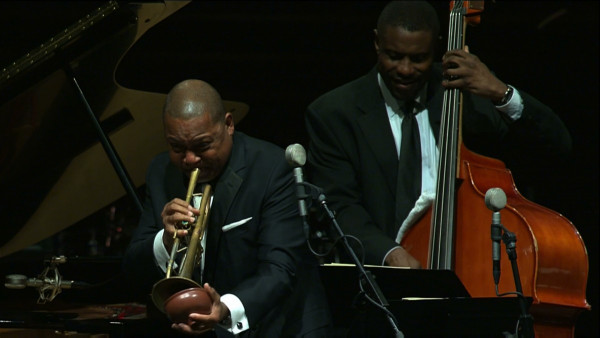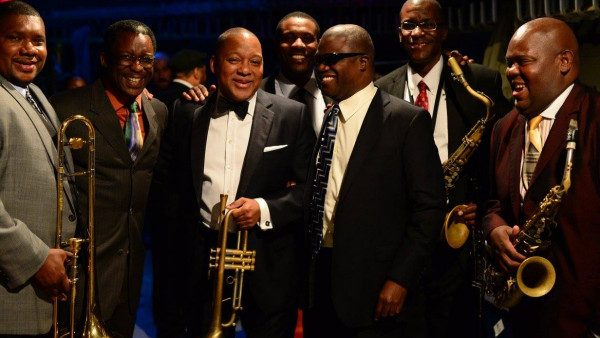Wynton Marsalis honored at Marian Anderson Awards at the Kimmel Center
The Kimmel Center was aglow for the Marian Anderson awards on Tuesday evening with stars including honoree Wynton Marsalis, TV journalist Soledad O’Brien as master of ceremonies, gospel singer Kim Burrell, and Grammy-winning vocalist Lalah Hathaway. Attendees donned regal dresses and dapper suits to honor historic contralto Anderson and jazz legend Marsalis.
Philadelphia-born Marian Anderson established an award in her name in 1943, originally intended to help promising young singers. In its present form, the award honors artists in any realm of the arts who also have outstanding records in humanitarian and philanthropic work. Past honorees include Harry Belafonte, Gregory Peck, Elizabeth Taylor, Maya Angelou, James Earl Jones, and Jon Bon Jovi.
Marsalis has won nine Grammys and is the first person to win Grammys for both jazz and classical recordings, as well as the first jazz artist to win a Pulitzer Prize for Music. He also is a recipient of the National Medal of Arts award. His humanitarian work includes the Children’s Defense Fund, the Higher Ground Hurricane Relief Benefit Concert, and the Bring Back New Orleans Commission – the last two organized in the aftermath of Hurricane Katrina.
The concert opened with 17-year-old violinist Max Chambers, a recipient of the Young Artist Study Grant, playing a rendition of “Autumn Leaves.” Misty Copeland, principal dancer of American Ballet Theatre, performed a piece commissioned piece by Philadelphia-born Robert Garland, resident choreographer of the Dance Theatre of Harlem, with Marsalis’ voice in the soundtrack.
Hathaway sang her “When Your Life Was Low” – “Always remember, my friends, the world will change again” – with her voice taking on special depth with the title line. She then sang “Little Ghetto Boy” (“playing in a ghetto street”), a song her father Donny Hathaway recorded in 1972.
Burrell said both she and Marsalis have a “love for God, love for music, and love for New Orleans.” She began with “Open Up the Door” and then segued to a rousing, New Orleans-flavored “Highway to Heaven,” complete with a youth drum line behind her.
After a short speech by Mayor Nutter, Marsalis came on and went straight into music with his original septet. The band members, whom Marsalis later called his “brothers for life,” had not played together in 20 years. Marsalis also noted they had not practiced.
In remarks later, Marsalis paid homage to Anderson’s legacy and how it related to the current social, political, and cultural climate. In a succinct and powerful speech, Marsalis said slavery took the “virginity of our idealism to discover what we were willing to sacrifice for freedom, and the sacrifice was great for the entire nation.”
He called on everyone to uphold the legacy of freedom, education, and art, none of which, he said, were mutually exclusive: “Excellence itself is a form of protest.”
by Sofiya Ballin
Source: Philadelphia Inquirer


